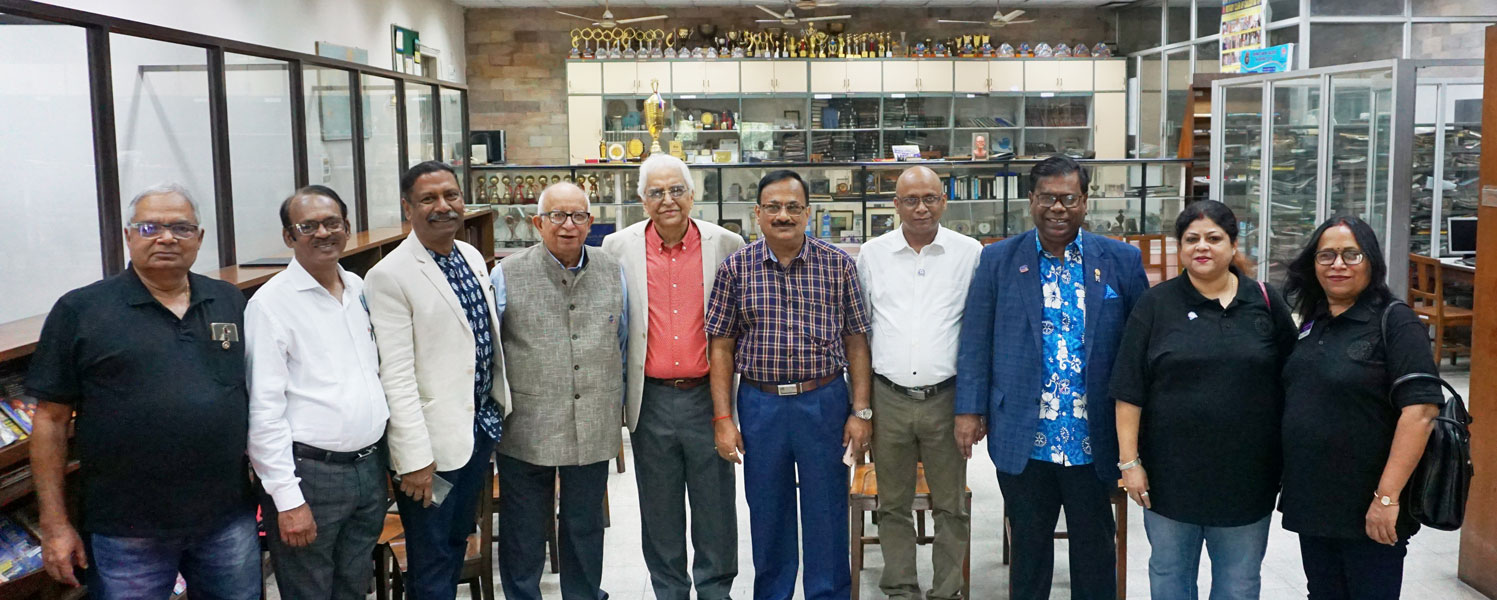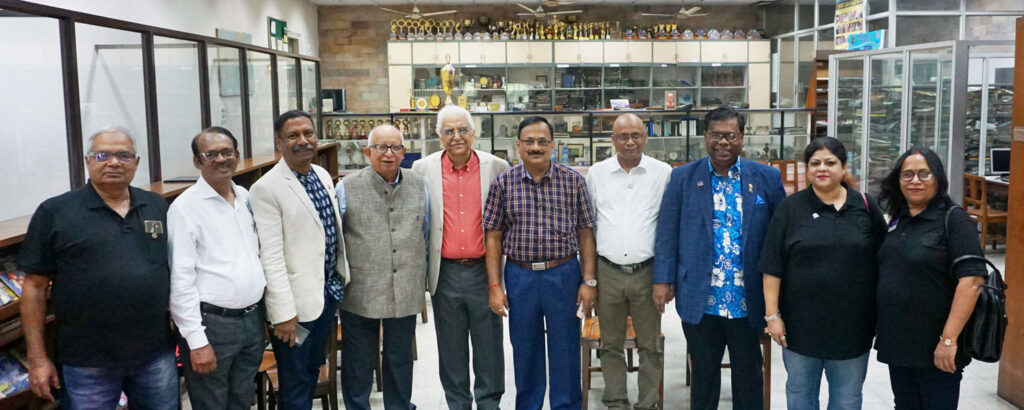As Rotary Club of Calcutta, RID 3291, is poised to celebrate its 100th charter day in Jan 2020, its members go on a flash-back journey of the lives they have touched through a variety of projects over the last century. The club was installed in Sep 1919 and chartered in Jan 1920. From a strength of 21, it has grown to 240 members today, and has sponsored 28 Rotary clubs in India, Pakistan and Bangladesh. It has the distinction of having the first RI President from India in Nitish Laharry and getting leaders such as Mahatma Gandhi and the Dalai Lama to address the club.


Here is a glimpse into some of the life-transforming activities of the club.
The Annual Children’s Treat is one of the long-running projects that was begun in 1925 with an aim to gift ‘a day of sunshine’ to children from marginalised families across Kolkata. What began with 200 children from five orphanages, gradually swelled to 1,750 children from various orphanages, NGOs and other institutions. “The picnic is meant to bolster their morale and confidence,” says club member Amit Ghosh. They enjoy their day out each year at the Nicco Park from dawn to dusk and are treated to a fine spread of lunch and snacks. They go back home loaded with memories and a gift pack from the Rotarians. Club member Rajiv Kaul owns the 40-acre park with 35 exciting attractions, and his magnanimity is helping the club conduct the programme for the children for so many years. The park is shut for outsiders on this occasion and reserved for the exclusive use of these children.
The children’s immunisation project, that started in 2009 at the St Thomas Home in Howrah, has immunised 75,000 children against 20 diseases through a series of global grants worth $300,000. “We aim to vaccinate 25,000 children this year,” says Ghosh. The immunisation activity is executed every two months at the Home which houses TB patients abandoned by their families. “We focus on immunising children of these patients and will be including cervical cancer inoculation for 8–14 year-old girls.”

The club is facilitating vocational courses for women at the Home through a global grant of $100,000. “I have learnt to stitch like a professional and want to become a fashion designer,” says Zoya Ali, greeting us cheerfully from her bed at the Home. She was abandoned by her family after she contracted TB six months ago. Thanks to the club, she is learning tailoring, along with many other patients.
As we enter the sprawling campus of the Howrah South Point Home, we are greeted with Bengali poems sung by little children. The club provides medical care for the differently-abled children housed here. As part of the centenary project, the club, through a global grant with a German club, has initiated construction of a bridge school for underprivileged children here.
Ghosh points out that the club had played a role in persuading the government in 1927 to construct what is today the Howrah bridge. It was earlier a dilapidated pontoon bridge.

The club was instrumental in introducing broccoli to the city after the members undertook an integrated village development programme at Begumpur in 1987, and a similar programme was taken up at Bishnupur with the help of an RCC that works for holistic development there.
The Rotary Sadan is an iconic monument for which PRIP Rajendra Saboo laid the foundation stone in 1992. It houses the Nitish Laharry Children’s Library and the archives section holds Rotary memorabilia collected over the years. It also houses a vocational training centre that provides courses for women from marginalised families.

A tie up with the Rabindranath Tagore International Institute of Cardiac Sciences and a global grant have helped the club save 700 heart patients so far. “We aim to touch 1,000 lives during the year,” says Saumen Ray, Centenary Committee Chair, as he lists out other projects to commemorate the milestone year. These include construction of a hostel for a tribal school, screening 10,000 children for avoidable blindness and operating on 1,000 children, and making 1,000 adults literate. Over the years the club has constructed 600 toilets in schools, three pay and use toilets across the city and sunk 200 borewells, against a centenary target of 1,000 toilets, 10 public toilets and 300 borewells. Twelve villages have been made open-defecation free and 12 more will be targeted this year.
“The fact that the club is turning 100 has given us all fresh energy and every day we get new ideas from various members, some of which are too good to pass. This year has been a breeze and we still have a lot more programmes lined up for the year. But nothing to beat Club President Purnendu’s enthusiasm,” smiles Ray.
Pictures by Jaishree






